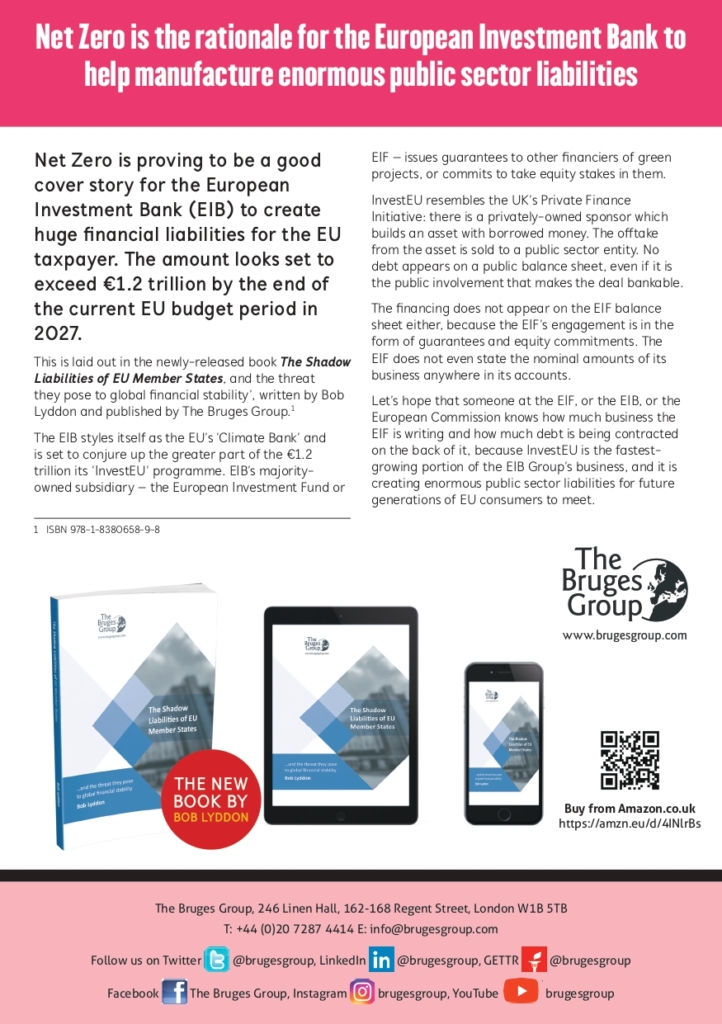Published on 25th April 2023
Net Zero is proving to be a good cover story for the European Investment Bank Group to create huge financial liabilities for the EU taxpayer. The amount looks set to exceed €1.2 trillion by the end of the current EU budget period in 2027.
This is laid out in the newly-released book ‘The shadow liabilities of EU Member States, and the threat they pose to global financial stability’, written by Bob Lyddon and published by The Bruges Group.[1]
The European Investment Bank (EIB) has now styled itself as the EU’s ‘Climate Bank’: for example it issued a press release on 27th January 2022: ‘EU climate bank EIB helps build modern Sweden by lending EUR 2.47 billion’.[2]
Being the EU’s ‘Climate Bank’ involves the EIB making direct loans into projects, such as one announced on 8th March 2020: Le Pomerania Windfarm ‘Supporting a green, just transition’.
But the greater part of the €1.2 trillion is conjured up through finance structures under the ‘InvestEU’ programme. This involves EIB’s majority-owned subsidiary – the European Investment Fund or EIF – issuing guarantees to other financiers of green projects, or the EIF making commitments to take equity stakes in them.
InvestEU is a reincarnation of the UK’s Private Finance Initiative or PFI. A typical PFI deal was for a school or hospital, used by a public sector entity. Under both InvestEU and PFI, an asset is built by an ostensibly private sector entity, which has a contract with a public sector entity to use the asset/buy the offtake generated by the asset. The contract makes the project financeable. The financiers are taking EU public sector risk, because the contract is watertight and ensures that enough money comes in from the public sector entity to service and repay the debts. However, because the contract is a commercial contract, not a loan contract, the EU public sector entity does not have to record its liability as a loan. In fact it does not have to record it on its balance sheet at all.
The borrower-of-record is the privately-owned entity that built the asset. In consequence InvestEU-related debts fall outside the scope of EU public sector debt, just as PFI debts fell outside of UK national debt.
Nevertheless the commercial contract terms cover the debt service cost, such that this is a form of borrowing, only one that is off-balance sheet for the EU public sector entity.
The EIF’s involvement in InvestEU and its purpose were characterized by the EIF in a LinkedIn post in April 2022 that ‘InvestEU is here to support the European #entrepreneurship ecosystem with the #financing needed for #greentransition and #digitaltransformation’.
This is true: InvestEU is the fastest-growing portion of the EIB Group’s business, and it is creating enormous public sector liabilities for future generations of EU taxpayers and consumers to meet.
[1] ISBN 978-1-8380658-9-8
[2] https://www.eib.org/en/press/all/2022-026-eus-klimatbank-eib-bygger-det-moderna-sverige-lanar-ut-eur2-47-miljarder accessed on 8 February 2023

